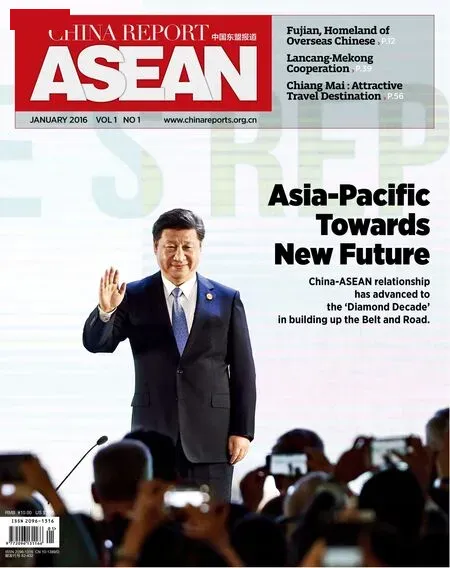Green Society for Healthy Living
By Sukanya Sereenonchai
Green Society for Healthy Living
By Sukanya Sereenonchai
Obtaining a China-AUN scholarship (funded by the Chinese government under ASEAN-China Academic Cooperation and Exchange Program), I stayed in Beijing from 2011 to 2014.
After graduation, I gained the support from the National Research Council of Thailand (NRCT) and Chinese Academy of Social Sciences (CASS) as an exchange scholar.
Fortunately, I am now in Beijing again as a senior scholar. As my own interest in environmental communication, there are three outstanding issues that can also be practically useful and valuable for the Tai society.
‘Clear Your Plate' Campaign
Te campaign was initiated in 2012, by Xu Zhijun (Vice President of China Land & Resources News Agency),as an online campaign against waste at the dining table. Te campaign has since drawn the attention of the Chinese public.
On Jan 16, 2013, Xu launched the “Clear Your Plate”campaign on his Weibo (the Chinese version of Twitter)to encourage people cherish their food for better preserving resources and protecting the environment and health.
Later on, the General Ofce of the Communist Party of China (CPC) issued a notice calling for practicing strict economy and combating waste on Jan 20, 2013, and the campaign was broadcasted in the Central Television News Bulletin two days later.
I frst saw the symbol refecting this campaign on the table inside the canteen of Renmin University during my visit to Beijing in May 2015. Te photo of a clean empty food tray was a clear message for me to eat all the food.
In the Thai society, a campaign like this has been promoted by the cooperation between nongovernmental organizations: Thailand Environment Institute Foundation (TEI) and Thailand Business Council for Sustainable Development (TBCSD) since 2014, and generally in the schools and universities as part of their study and institutional project.
Ban on Free Plastic Bags
Before studying in Beijing, I was advised that I should prepare my own shopping bags as the plastic bags would be charged, while they were provided free of charge in Tai shopping malls.
I got to know more about that during my stay in Beijing. On June 1, 2008, the Ministry of Commerce started to implement the policy that all the Chinese retailers(supermarkets, department stores and groceries) should stop providing free plastic shopping bags less than 0.025 millimeters thick.
Nowadays, the Thai society has also been more concerned about using fewer plastic bags. The Thai nationwide campaign to reduce plastic bags use was launched on August 15, 2015 by the Department of Environmental Quality Promotion, the Ministry of Natural Resources and Environment. Fifteen major supermarkets and shopping malls throughout the country have joined this campaign. However, we are at an initial stage of putting the idea into action.
Communicating Adaptation to Climate Change Initiative
Adaptation has to play a more important role to tackle climate change, other than reducing greenhouse gas emission (mitigation).
Te project of “Adapting to Climate Change in China(ACCC)” is one of the outstanding trans-disciplinary cooperation projects by various sectors at the international,national and local levels focusing on developing evidence-based climate change adaptation policy in China as the frst phase.
Now, the project has been carried on to the second phase for pilot practical adaptation in the provinces and regions of Guizhou, Jiangxi, Inner Mongolia, Ningxia,Jilin and Shandong.
Te Tai society has also paid more attention to climate change adaptation. Te Tai adaptation projects is regional and smaller than the ACCC project. Accordingly,what I experienced from this project can also be applied to the situation in Tailand.
First, stakeholders participating and networking in the project should be from various sectors. Second, efective communication is a crucial tool. Tird, to work with the local people efectively and benefcially for social benefts, trust among the people and research teams is very important.
I realized how the Chinese government and general public have worked together to solve the environmental problems for sustainable livelihoods in the long run. These practical learnings can be shared with those who are interested in or working on environmental issues.
About the author:
A researcher in the
Faculty of Environment and Resource Studies,Mahidol University,Thailand.

